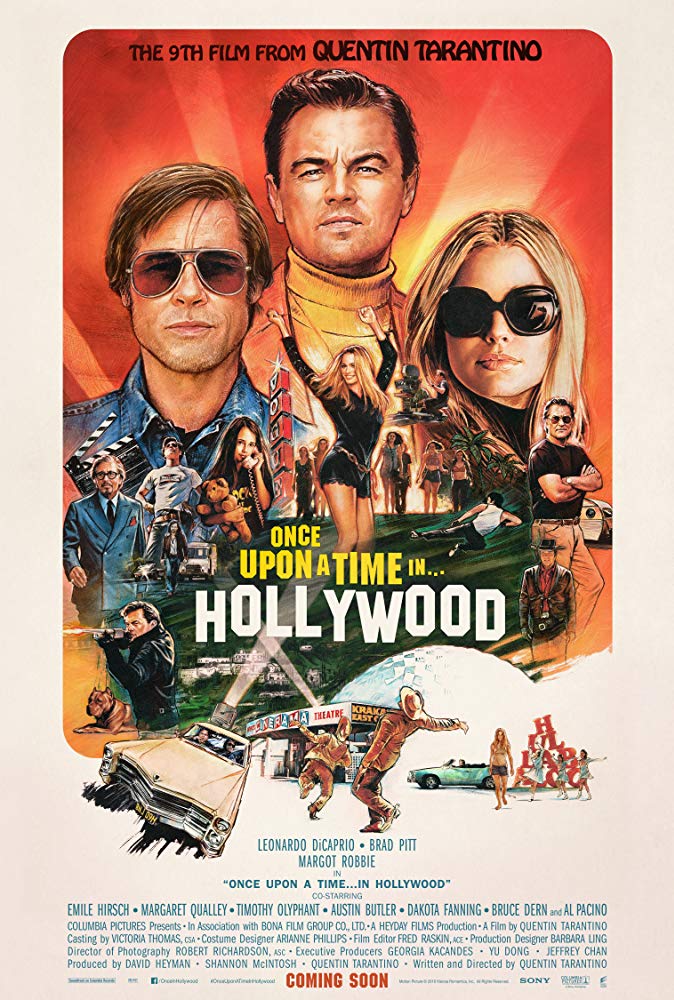
The collapse of The Weinstein Company was the kickoff to a cultural chain reaction throughout the entertainment industry. This makes it feel all the more ironic that Once Upon A Time In Hollywood, Quentin Tarantino’s first movie separate from Weinstein production, is an ode to a Hollywood that doesn’t exist anymore.
It’s a fictional retelling of the Manson Family’s 1969 attack on Sharon Tate (played by Margot Robbie), but she’s not the focus here. Instead, it’s on Tate’s fictional next-door neighbor Rick Dalton (Leonardo DiCaprio), and his adventures with his best friend and stuntman Cliff Booth (Brad Pitt).
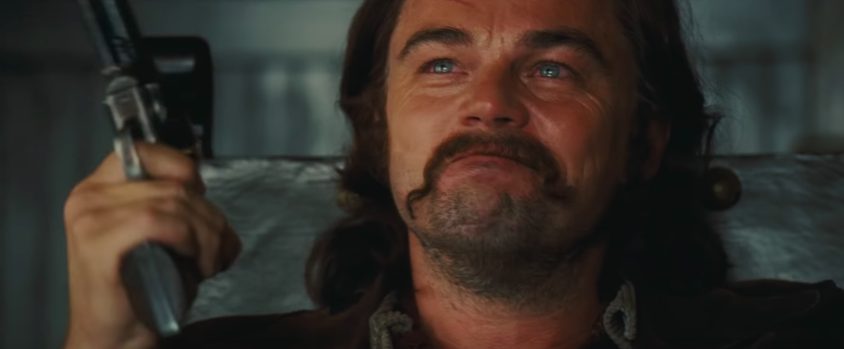
If you couldn’t tell by most of his filmography, Tarantino’s a massive movie buff, especially for westerns. His Rick is a struggling cowboy actor who’s worried his career is in a tail-spin after he discusses the end of his TV show “Bounty Law” with his fast-talking agent (Al Pacino). If befriending Sharon and her boyfriend, the prominent director Roman Polanski (Rafal Zawierucha) won’t help his future prospects, maybe his new role as a slimy bad guy on CBS’s Lancer working alongside a precocious child actor (Julia Butters) will allow him to recapture some fame?
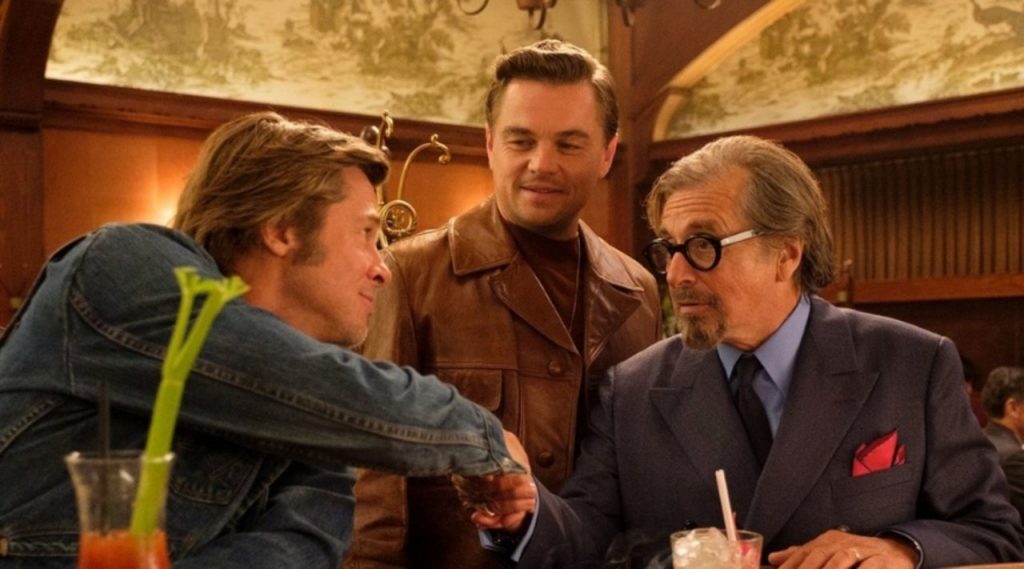
Leo’s banter with Pitt is usually funny, and he crafts Dalton into a walking car wreck with an inflated ego, who can go from incredibly cocky to a pathetic mess in not much time. He’s somehow able to will himself towards a performance on the show that would certainly feel ahead of its time for that period, a testament to DiCaprio’s acting chops.
Meanwhile, Booth’s misadventures lead him to some unexpected encounters with various Manson family members at the Spahn Ranch while doing housework for Rick (including brawling with Steve Grogan), and it’s only through an LSD-dipped smoke that he’s able to get through a later run-in.
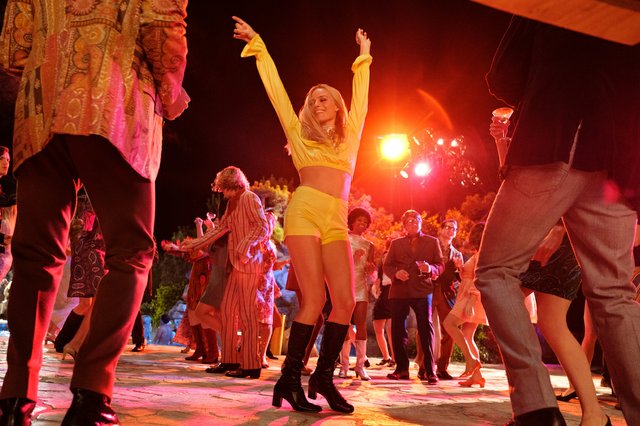
All the while, Margot Robbie’ Sharon Tate happily goes about her business, proud of her role in Dean Martin’s The Wrecking Crew. That’s about it as far as focus on her as a character, which is a shame given her acting ability and potential to add to Once Upon’s overall substance- outside of Steve McQueen (Damien Lewis) smugly remarking about how her and Polanski’s relationship won’t last during a party at the Playboy Mansion. (No doubt partially related to awkward public comments Tarantino made about Polanski’s allegations, he wisely keeps the infamous director in the background of this movie.)
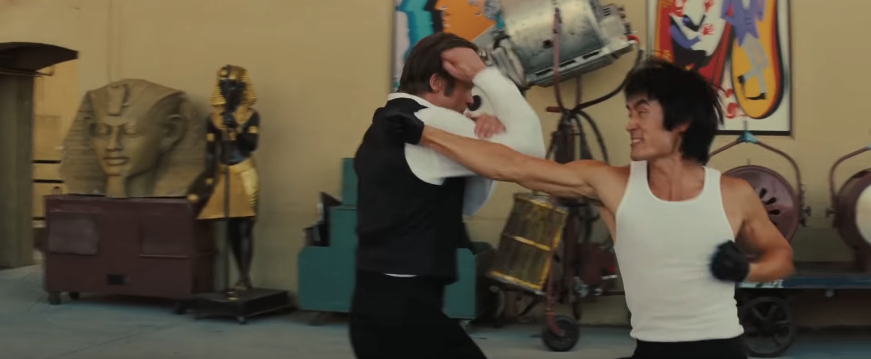
Tarantino normally isn’t the most subtle director in the world, but here he’s able to capture late 60’s Hollywood glamour without sacrificing the undercurrent of darkness and seediness that most of his work features. Like as outgoing and magnetic as Cliff comes off, there are multiple hints through the story he has a far darker side than we assume.
Not just by his willingness to fight a braggadocious Bruce Lee (Mike Moh, with some amazing presence as the martial arts icon), but namely in the rumors surrounding his wife’s death (nothing graphic is shown, but we get hints of a possible motive).
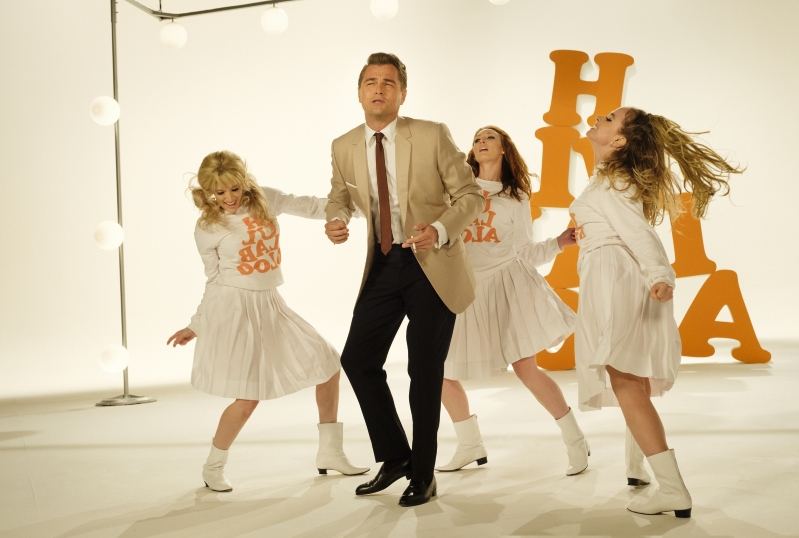
As local hitchhiker Pussycat (Margaret Qualley) discusses the horrors of Vietnam to Cliff, you get the sense Tarantino knows these good old days mostly weren’t so good, but he can’t shake his affection for past memories judging by how well the retro Los Angeles, Rick’s various spaghetti western posters, and his hacking into Great Escape footage have been recreated. The production and visuals feel very immersing, and some good cinematography from Robert Richardson helps here as well.
Sometimes it can feel as if the film drags a bit, as it takes its time focusing on long shots and conversations that aren’t immediately centric to the plot progression. But the rewards for the two-hour-plus run time is a bonkers, ultra-violent and morbidly comical climax that unfolds differently from how you might assume. As usual, QT’s extremely cruel towards his villains (both male and female, at times in a manner where the story’s screaming “equal opportunity punishment!” very loudly), who tend to be evil in such a manner that you won’t feel any pity for them once they get pounded.
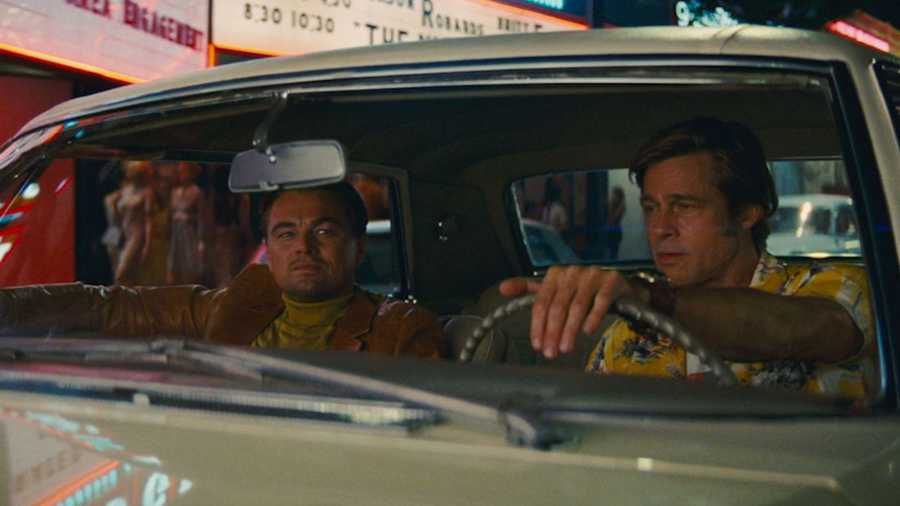
I think with a bit of trimming in the editing room and a more detailed character arc for Robbie, Once Upon A Time In Hollywood could have been a classic dark comedy- but as it is, it’s a decent auteur throwback movie. I mean, I had plenty of fun, but this movie didn’t really need to be two-and-a-half hours.
Don’t come in expecting any mind-blowing revelations or hidden truths about the period, because this is a very archaic and white-centric view of 1960s Tinseltown. It’s DiCaprio’s and Pitt’s humor and strong performances, on top of the creativity and crazy fun leading into the conclusion, that really keep the movie afloat.
In some ways it’s more mature and not quite as crass as Pulp Fiction or Reservoir Dogs, but still has a lot of Tarantino’s trademark crudeness, extreme gore, nostalgia, movie knowledge and long stretches of character building. Nothing about it is going to win over anyone who doesn’t care for his style of filmmaking, so it’s very much a movie for the already converted, but there’s plenty to enjoy if you’re fine with much of his work. If you’d had the chance to see it, come down to @Official_FAN as always and let us know if you enjoyed it or not!
